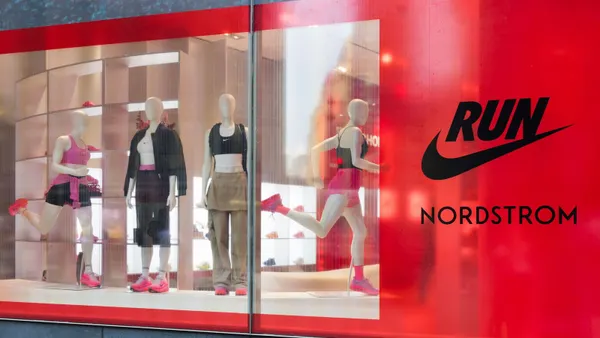UPDATE: February 5, 2020: Casper on Wednesday cut the price range of its initial public offering to between $12 and $13 a share, according to a document filed with the Securities and Exchange Commission. If the proposed 8.35 million shares are priced in the middle of the range, the DTC mattress brand's market cap would come in around $500 million.
Dive Brief:
-
Direct-to-consumer mattress company Casper on Monday said it expects the offering of 8.35 million shares (9.6 million "if the underwriters exercise their over-allotment option in full") to be priced between $17 and $19 per share, according to a document filed with the Securities and Exchange Commission.
-
On the upper end of the range, the company could bring in $158.7 million in proceeds from the IPO, or $182.4 million if all 9.6 million shares are offered, according to the document.
- Under either scenario, the company's valuation comes in well below the $1.1 billion post-money valuation the company said it achieved after a March 2019 funding round. The company could be valued at up to $768.2 million, depending on how the IPO proceeds. Casper did not return Retail Dive's request for comment.
Dive Insight:
While Casper has been praised as a player leading the mattress disruption, the direct-to-consumer (DTC) darling revealed in its initial public offering that the road to going public isn't paved without a couple of bumps in the road.
Casper at the end of 2018 notched $357.9 million in sales, and in the nine months ended Sept. 30, it reported revenues of $312.3 million, up more than 20% from $259.7 million in the year-ago period.
However, the company has yet to achieve profitability. In 2018, Casper reported a net loss of $92.1 million, while its sales and marketing expense reached $126.2 million. Total marketing expenses between 2016 and Sept. 30, 2019 were $422.8 million, according to a document filed with the SEC.
As the cost of customer acquisition gets prohibitively high, online pure plays are pushed to expand their operations offline. After partnering with traditional retailers like Target, Nordstrom and West Elm to enter brick and mortar, Casper in 2018 announced plans to open roughly 200 stores across North America.
The home space has grown more crowded over the years from DTC brands, like Parachute and Nectar, and traditional players like Neiman Marcus. Since its inception in 2014, Casper has expanded well beyond mattresses and into other product categories, including dog beds, CBD gummies and a smart nightlight — all in an attempt to capture more share in the global "sleep economy," which it says is valued at $432 billion.
The documents revealing the company's unprofitability also call into question what investors are looking at when a company files an IPO. While companies like Wayfair and Chewy garnered plenty of attention around their public debuts, it also revealed how much loss was accruing from these e-commerce players. At the end of 2018, Wayfair reported its loss grew more than 106% from the prior year to $504.1 million, and Chewy in its S-1 revealed net losses of $267.9 million during the same period and listed it as one of its risk factors in growing the business.
Clarification: This story has been updated to include the potential valuation figures for the given scenarios.













